If you are considering selling your small to midsize business, you may already know that extensive financial information goes into constructing a deal. Appraisal and fair market values are two of these figures, which are fundamental in getting the most money for the company you have worked hard to build.
Although these two numbers should ideally be the same, fluctuations in the market coupled with more subjective factors not found on paper often mean that it is different. However, understanding these calculations can help you identify factors where your company can improve its valuation and achieve a better purchase price.
This article will discuss appraised vs. fair market value and explain why they are essential when selling a business.
What Is Appraised Value?
The appraised value is the amount an appraiser deems your business is worth after reviewing all the relevant details. For example, cash flow, inventory and equipment on hand, and operations details like staff size and productivity contribute to your business’s appraised value.
Lenders often conduct third-party appraisals on the buyer’s behalf, and their figures might differ drastically from your expectation. This is why having an experienced intermediary on your side, like a Viking M&A business advisor, who is knowledgeable in multi-step approach business valuations to ensure the price you decided to go to market at accurately represents the business’s value.
What Is Fair Market Value?
Fair market value is the price your business will likely sell for on the open market. A few methods for determining fair market value include assessing recent sales prices of similar companies in your industry or seeking an expert opinion. With any method, your business’s financial health, the availability of comparable companies for sale, and the industry’s long-term prospects are all essential factors.
While numbers and formulas often determine an appraisal value, the fair market value is what a buyer is willing to pay. For instance, if your business’s appraised value is $1 million and you can only find buyers at $750k, the fair market value is $750k. However, if several buyers offer the same price, the demand can cause the fair market value to rise.
Why Appraised Value vs. Fair Market Value Matters
If you are selling a business, it is essential to consider appraised value vs. fair market value because it affects how much money you net from the transaction. As mentioned above, the two figures should ideally be the same or close to it, but things sometimes work differently in practice.
Businesses possess a multitude of assets, both tangible and intangible, that contribute to their overall value. Tangible assets, such as inventory and equipment, can be appraised through conventional means, akin to valuing physical properties like vehicles or real estate, relying on solid comparative analysis.
On the other hand, intangible assets include branding, patents, trademarks, contracts, accounts receivable, customer lists, key employees, and a company’s reputation. Evaluating the worth of these intangible assets can prove complex. Given that, and considering that the value of intangible assets typically outweighs the tangible ones (unless the company is insolvent), it is wise to engage the services of an experienced firm like Viking M&A for your business valuation.
Viking understands the complexity of a business valuation, so we look at much more than hard data. Your company’s reputation, the strength of its management, and the reliability of its customer base are all factors in a comprehensive valuation. We calculate the intangible value within a business and combine it with the appraised value of tangible assets. This holistic approach offers a well-rounded assessment of the business’s market value.
While a business appraisal can serve as an informal estimate or a pricing guide, a formal business valuation is required for lending institutions, property settlements, and estate proceedings. Therefore, if you are considering selling a business, we recommend obtaining a formal valuation that can withstand rigorous scrutiny.
Viking Mergers & Acquisitions has been the Southeast United States’ premier business brokerage since 1996, with over 800 closings. On average, businesses we sell receive at least 96% of the published asking price, and our success rate is over 3x the industry average. Working with a seasoned, reputable business broker or advisor is your best choice for obtaining an accurate valuation.
If you have queries about your business’s value, contact Viking today for a free consultation. We offer confidential business valuations for qualifying companies.

